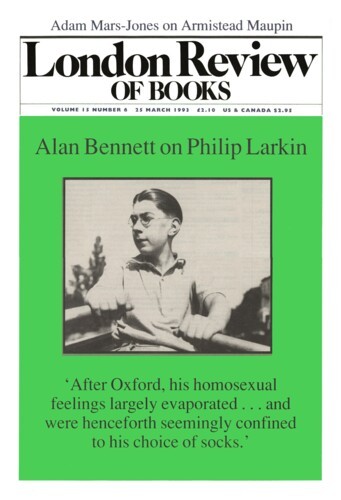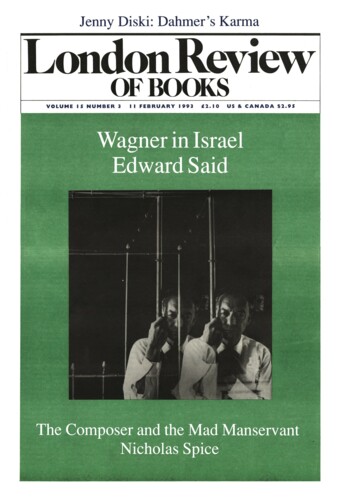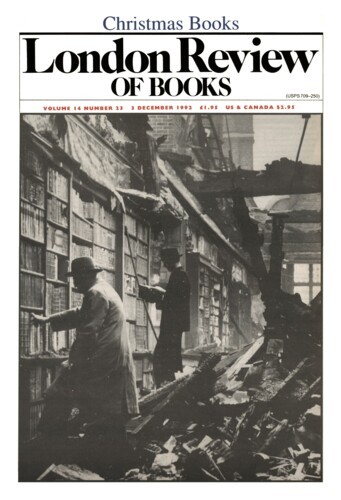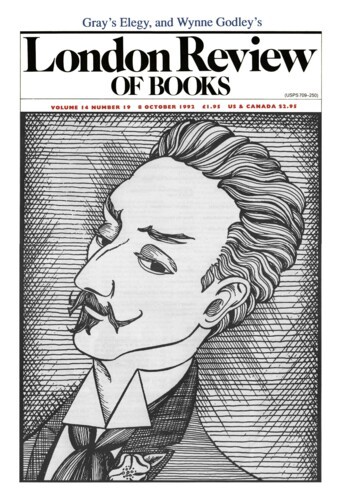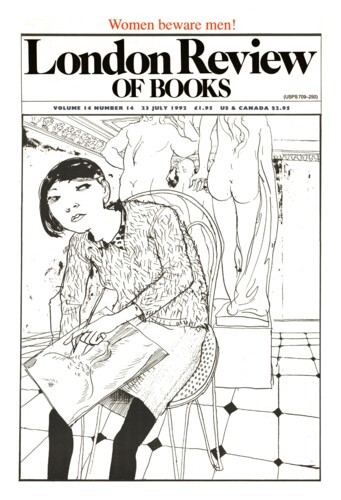Diary: In LA
Stephen Smith, 25 March 1993
I’m driving in South Central Los Angeles in my rented Ford, which is calculated, with its icing-sugar bodywork and sappy sprig of an aerial, to lose itself in the fitful lines of flaking write-off and deckled insurance jobs. My chrome is see-your-face; theirs is in-your-face. It’s a loweringly humid afternoon on which four white men are standing trial in a city courthouse accused of depriving a black man of his civil rights, especially the right not to be batoned following traffic violations. The sheriff’s car with which I have been making tender eye-contact in the rear-view mirror seems to have turned off, somewhere on Compton or Alondra. I’m now the only white man for blocks. I know this because the people of South Central LA are on the streets – black teenagers wheeling buggies to the 99-cent thrift shop, moustachioed Hispanics waiting in line for a bus near the Solid Rock Church. When people tell you that nobody walks in LA, they mean nobody except people of colour: the euphemism preferred by the hand-wringing classes, all of whom consider the idea of going to the ghetto – you mean actually going – one of the worst they’ve ever heard. The man at the hire-pound had been uncommonly sanguine, perhaps because he had learnt his roadcraft on the streets of Lagos.’
